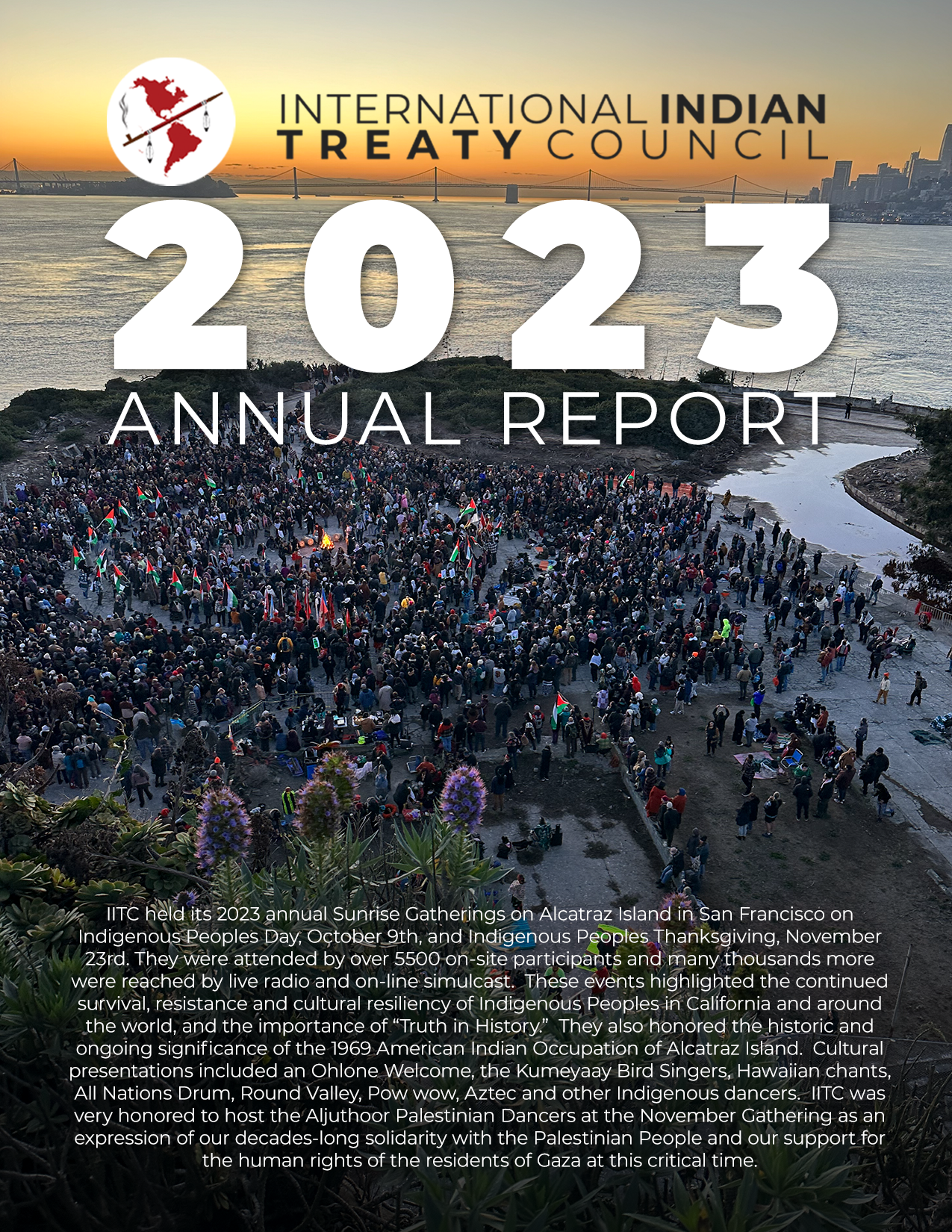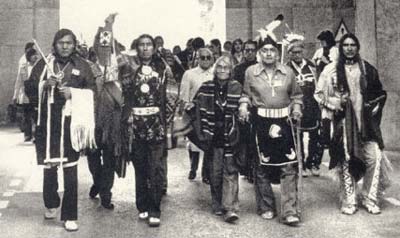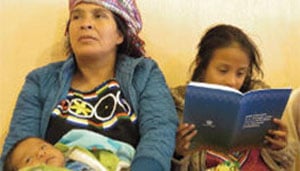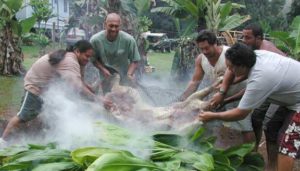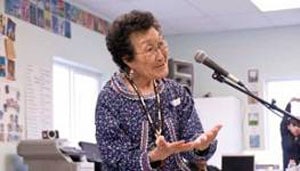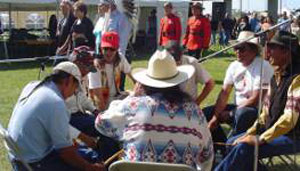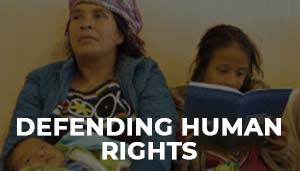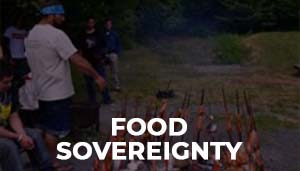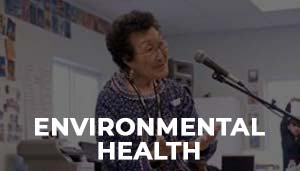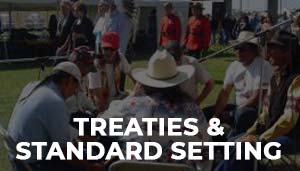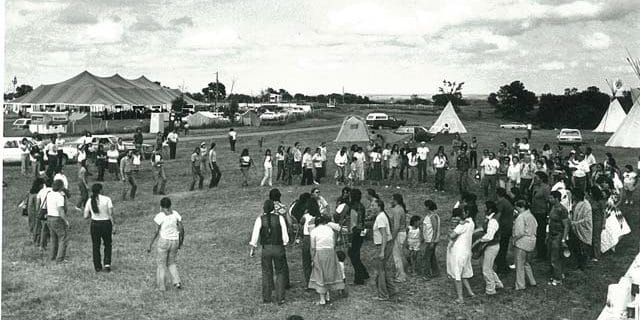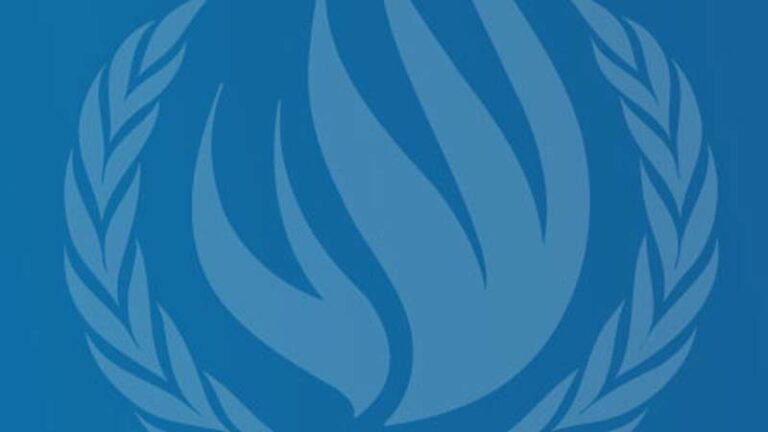
The impact of COVID-19 on the rights of indigenous peoples under the UN Declaration on the Rights of Indigenous Peoples
The 13th session of the Expert Mechanism on the Rights of Indigenous Peoples, initially scheduled to take place from 8 to12 June 2020, was postponed to take place from 30 November to 4 December due to the COVID-19 outbreak.
In view of the ongoing COVID-19 crisis affecting the travel of members, indigenous peoples, Member States and others, the EMRIP decided to convert its postponed 13th into four virtual regional meetings, followed by a wrap up meeting for the EMRIP members and Secretariat only.
The topic of the regional meetings will be, “The impact of COVID-19 on the rights of indigenous peoples under the UN Declaration on the Rights of Indigenous Peoples”. See the Concept Note. The outcome of these regional meetings will be recorded in the EMRIP’s annual report.
The regional meetings will be held for only two hours at a time and two regions at a time, as follows:
- Africa and North America – Monday 30 November from 15:00 to 17:00 (Geneva time). Interpretation in English, and French.
- Pacific and Asia – Tuesday 1 December from 9:00 to 11:00 (Geneva time). Interpretation in English and French.
- The Arctic; Central and Eastern Europe, Russian Federation, Central Asia and Transcaucasia – Wednesday 2 December from 15:00 to 17:00(Geneva time). Interpretation in English, French and Russian
- Central and South America and the Caribbean – Thursday 3 December from 15:00 to 17:00 (Geneva time). Interpretation in English, French and Spanish.
Objectives
- Hold an in-depth discussion on the topic to be recorded in EMRIP’s annual report and to be fed into future ERIP studies and reports
- Discuss the latest related national and regional developments in the area of policy and law,
- Identify emerging good practices, adopted by Indigenous peoples and Member States and challenges from different regions relating to the theme
Participants
Participation in the regional meetings is open to indigenous peoples, States and other stakeholders. Given the limited time for each meeting, the challenging virtual nature of these meetings, the inability to hear from indigenous peoples during a normal annual session this year, and the concerns expressed above about the limited capacity of indigenous peoples to engage with the UN mechanisms during this pandemic, the Expert Mechanism will give priority to indigenous peoples during these regional meetings.
During the regional meetings, the Expert Mechanism would like to hear from you on the specificities of how indigenous peoples are experiencing life under COVID-19 by responding to the following questions:
- What are the main challenges faced by indigenous peoples during the COVID-19 pandemic, in particular with respect to indigenous people’s health and access to health care, and the protection of their land, territories and resources.
- What has been the role of traditional practices and medicines during the pandemic?
- How has COVID-19 affected indigenous people’s economic, social and cultural life?
- What is the particular impact from COVID-19 on indigenous elders, women, youth, children and persons with disabilities?
- What are some of the good practices developed by indigenous peoples and Member States, specific to indigenous peoples, in alleviating the negative effects of COVID-19?
- What measures are being taken or could be taken to ensure the protection of indigenous rights in the recovery stage andaftermath of COVID-19?
- What do indigenous peoples need to help them overcome this crisis?
How to participate?
You can choose to take part in the regional meetings either by registering as a presenter to get on the speakers list of the meeting on your region or by following the discussion through the webcast.
1. Register as a presenter on the interprefy platform
To register as a presenter at the regional meetings you must send your statement to the following email address by 6 November 2020: [email protected].
The statement should not exceed 3 mins (4 mins for joint statements). Guidance on the content of the statement is provided in paragraph 8 in the Concept Note.
Given the limited amount of time for statements, the number of participants will be limited. Recognising the vulnerable situation many indigenous peoples have been in since the COVID-19 crisis, two-thirds of the statements will come from indigenous peoples, and one-third from Member States.
The Expert Mechanism will decide on the list of speakers on the basis of the following criteria: the content of the statement and its relevance in light of the guidance given in paragraph 8 of the Concept Note; the organisations level of expertise and experience on indigenous issues; the size of the organisation and indigenous peoples represented; and whether the statement is a joint one and thus given preference.
The presenters will receive confirmation of their presence on the speakers list and the modalities of the discussion prior to the regional meeting.
Interpretation will only be provided in the languages stated in paragraph 6 of the Concept Note.
All Statements provided, whether from presenters or others, will be posted on the webpage.
2. Webcast
Anyone can follow the meetings by webcast here: http://webtv.un.org/
Those who follow by webcast can participate by sending questions or comments during the meeting to the following email address: [email protected]
These comments and questions will be sent to the presenters and members of the Expert Mechanism for discussion during the meeting.
Share this post
13th session/ Regional meetings of the Expert Mechanism on the Rights of Indigenous Peoples
The impact of COVID-19 on the rights of indigenous peoples under the UN Declaration on the Rights of Indigenous Peoples
The 13th session of the Expert Mechanism on the Rights of Indigenous Peoples, initially scheduled to take place from 8 to12 June 2020, was postponed to take place from 30 November to 4 December due to the COVID-19 outbreak.
In view of the ongoing COVID-19 crisis affecting the travel of members, indigenous peoples, Member States and others, the EMRIP decided to convert its postponed 13th into four virtual regional meetings, followed by a wrap up meeting for the EMRIP members and Secretariat only.
The topic of the regional meetings will be, “The impact of COVID-19 on the rights of indigenous peoples under the UN Declaration on the Rights of Indigenous Peoples”. See the Concept Note. The outcome of these regional meetings will be recorded in the EMRIP’s annual report.
The regional meetings will be held for only two hours at a time and two regions at a time, as follows:
- Africa and North America – Monday 30 November from 15:00 to 17:00 (Geneva time). Interpretation in English, and French.
- Pacific and Asia – Tuesday 1 December from 9:00 to 11:00 (Geneva time). Interpretation in English and French.
- The Arctic; Central and Eastern Europe, Russian Federation, Central Asia and Transcaucasia – Wednesday 2 December from 15:00 to 17:00(Geneva time). Interpretation in English, French and Russian
- Central and South America and the Caribbean – Thursday 3 December from 15:00 to 17:00 (Geneva time). Interpretation in English, French and Spanish.
Objectives
- Hold an in-depth discussion on the topic to be recorded in EMRIP’s annual report and to be fed into future ERIP studies and reports
- Discuss the latest related national and regional developments in the area of policy and law,
- Identify emerging good practices, adopted by Indigenous peoples and Member States and challenges from different regions relating to the theme
Participants
Participation in the regional meetings is open to indigenous peoples, States and other stakeholders. Given the limited time for each meeting, the challenging virtual nature of these meetings, the inability to hear from indigenous peoples during a normal annual session this year, and the concerns expressed above about the limited capacity of indigenous peoples to engage with the UN mechanisms during this pandemic, the Expert Mechanism will give priority to indigenous peoples during these regional meetings.
During the regional meetings, the Expert Mechanism would like to hear from you on the specificities of how indigenous peoples are experiencing life under COVID-19 by responding to the following questions:
- What are the main challenges faced by indigenous peoples during the COVID-19 pandemic, in particular with respect to indigenous people’s health and access to health care, and the protection of their land, territories and resources.
- What has been the role of traditional practices and medicines during the pandemic?
- How has COVID-19 affected indigenous people’s economic, social and cultural life?
- What is the particular impact from COVID-19 on indigenous elders, women, youth, children and persons with disabilities?
- What are some of the good practices developed by indigenous peoples and Member States, specific to indigenous peoples, in alleviating the negative effects of COVID-19?
- What measures are being taken or could be taken to ensure the protection of indigenous rights in the recovery stage andaftermath of COVID-19?
- What do indigenous peoples need to help them overcome this crisis?
How to participate?
You can choose to take part in the regional meetings either by registering as a presenter to get on the speakers list of the meeting on your region or by following the discussion through the webcast.
1. Register as a presenter on the interprefy platform
To register as a presenter at the regional meetings you must send your statement to the following email address by 6 November 2020: [email protected].
The statement should not exceed 3 mins (4 mins for joint statements). Guidance on the content of the statement is provided in paragraph 8 in the Concept Note.
Given the limited amount of time for statements, the number of participants will be limited. Recognising the vulnerable situation many indigenous peoples have been in since the COVID-19 crisis, two-thirds of the statements will come from indigenous peoples, and one-third from Member States.
The Expert Mechanism will decide on the list of speakers on the basis of the following criteria: the content of the statement and its relevance in light of the guidance given in paragraph 8 of the Concept Note; the organisations level of expertise and experience on indigenous issues; the size of the organisation and indigenous peoples represented; and whether the statement is a joint one and thus given preference.
The presenters will receive confirmation of their presence on the speakers list and the modalities of the discussion prior to the regional meeting.
Interpretation will only be provided in the languages stated in paragraph 6 of the Concept Note.
All Statements provided, whether from presenters or others, will be posted on the webpage.
2. Webcast
Anyone can follow the meetings by webcast here: http://webtv.un.org/
Those who follow by webcast can participate by sending questions or comments during the meeting to the following email address: [email protected]
These comments and questions will be sent to the presenters and members of the Expert Mechanism for discussion during the meeting.
